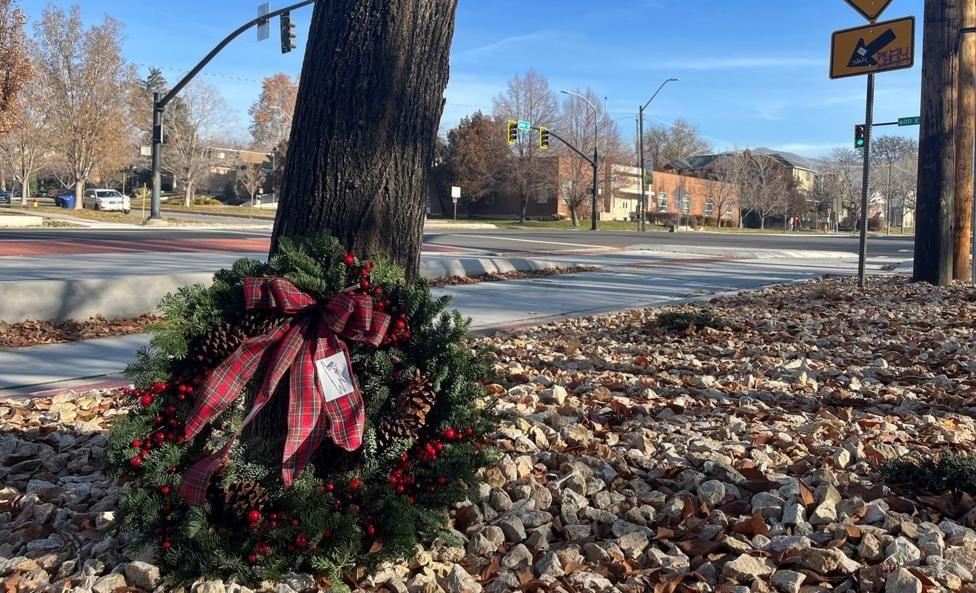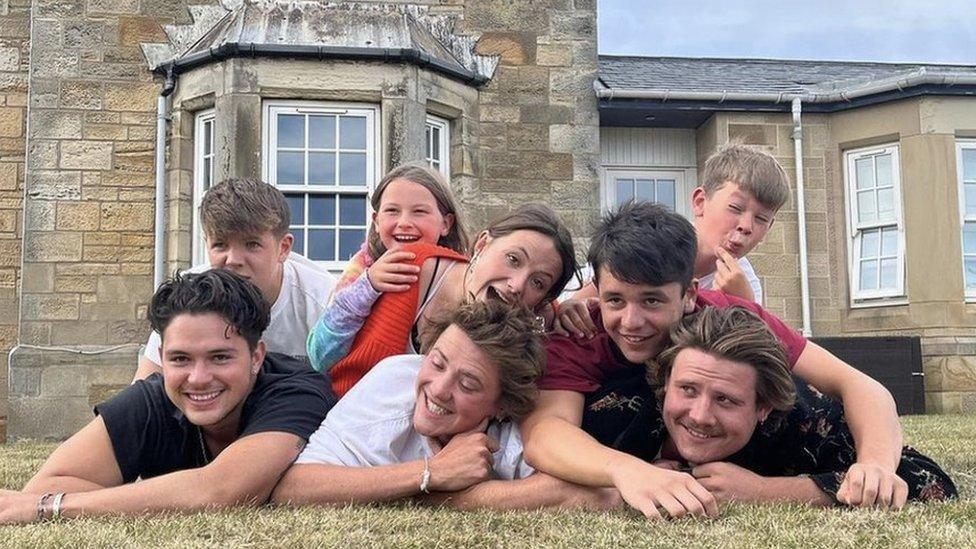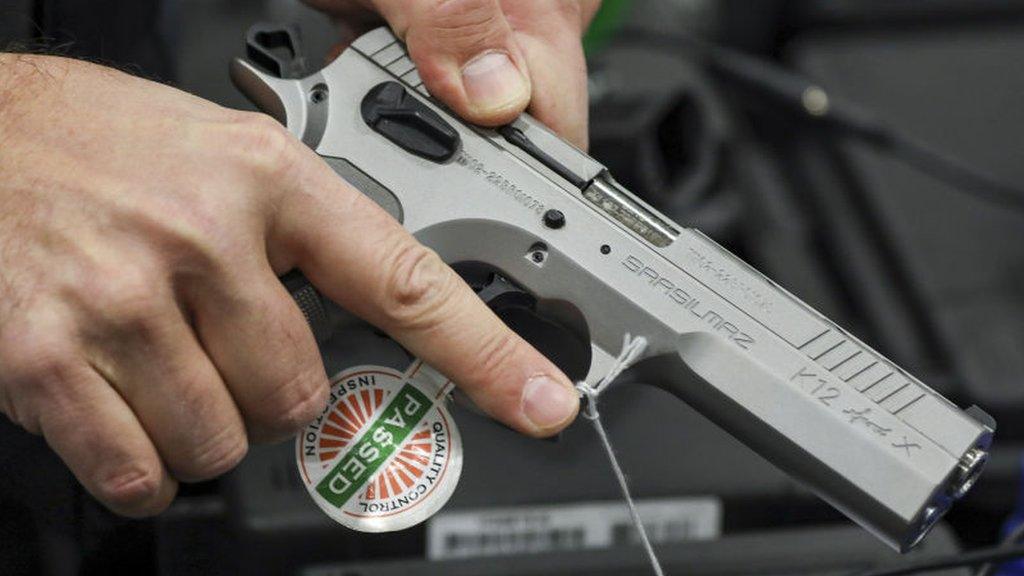Rory Swimm shooting: Boy to face trial as an adult

Rory Swimm was killed in Salt Lake City by a 15-year-old schoolboy
- Published
A schoolboy accused of gunning down a Dundee-born man in the United States is to go on trial for first degree murder in an adult court.
Prosecutors in Utah allege the teenager killed Rory Swimm with a single shot in Salt Lake City in October last year.
The incident took place 50 days before the suspect's 16th birthday which meant he was charged as a juvenile, limiting the potential sentence if he was found guilty.
A judge has now ruled that he should be tried as an adult, which means he will face a sentence of 15 years to life if he's convicted.
Rory's mother Susan Swimm says she, her husband Robb and daughter Maggie feel "a tremendous amount of relief" following the judge's ruling
Rory's mother Susan Swimm, who is from Glasgow, was in court to hear the judge's ruling with her American husband Robb and their daughter Maggie.
"I feel a tremendous amount of relief," she said.
"We have been living in a complete state of torture waiting to find out what this judge was going to rule.
"Rory's murderer was 50 days short of his 16th birthday. Had he been 16 years and one day, he would automatically have been charged as an adult.
"It's taken 14 months and three days to get to this stage.
"We can now go into Christmas knowing that some justice has been served for Rory."
The 23-year-old, who moved with his parents from Fife to Colorado when he was six weeks old. had been out drinking with friends when they became involved in an early-morning dispute with three teenagers outside a 7-11 convenience store.
The two groups hadn't even exchanged blows when Rory was shot through the heart. He died at the scene.
The casing from a 9mm bullet was discovered approximately 30 metres from Rory's body.

A memorial wreath near the spot where Rory was shot in Salt Lake City
Police traced the suspect and found a handgun in a locked safe in his bedroom. His grandfather had given him the weapon as a present.
Detectives believe the fatal shot had been fired by another handgun which hasn't been found.
They say a photograph taken earlier that night showed the teenager holding two guns, one of which was mounted with a green laser device.
CCTV footage was said to have shown a green light bouncing off the trunk and branches off a tree at the crime scene.
Prosecutors argued the killing was "a senseless random act of violence perpetrated against a group of complete strangers."
They argued it was necessary to try the teenager as an adult to protect the community.
Had he been convicted of murder as a juvenile, the maximum sentence he could have received was nine years and two months.
The suspect's defence lawyer told BBC News he was pleading not guilty to the murder charge.
"He was defending himself from a violent attack by Mr Swimm," said Rudy Bautista.
"He was charging towards my client with a skateboard held above his head as if he was about to strike my client with it.
"We will be arguing that my client was defending himself and is entitled to an acquittal."

Rory Swimm (middle) with family and friends on a trip to Elie in Fife
Salt Lake County district attorney Sim Gill explained that under Utah's criminal justice system, anyone accused of committing murder when they are aged under 16 must be formally transferred to the adult system. That decision had been taken by the Third District Juvenile Court.
He said: "Should the juvenile be convicted of murder as an adult, the defendant faces a mandatory prison commitment of 15 years to life in prison as determined by the Utah Board of Pardons and Parole."
Rory Swimm was a passionate skier and skateboarder and returned to Scotland every year to visit relatives.
His father Robb is hoping his son's death will lead to changes to Utah's gun laws but admits it will be an uphill struggle.
"Utah is very much pro-gun so it's very difficult to present anything that comes off as anti-gun.
"In that way I think justice is not really being done here.
"It's the bare minimum of justice is what our family is receiving."
Rory's family and friends have set up a foundation in his memory.
They say they want to "teach young kids the importance of empathy and the value of life."
- Published18 December 2023

- Published17 December 2024
